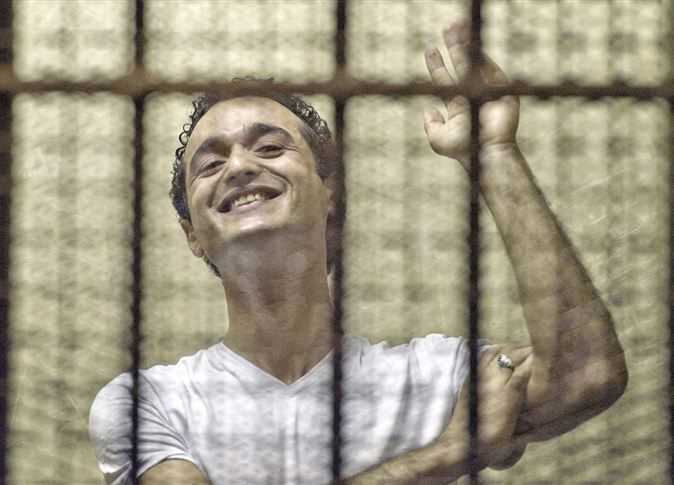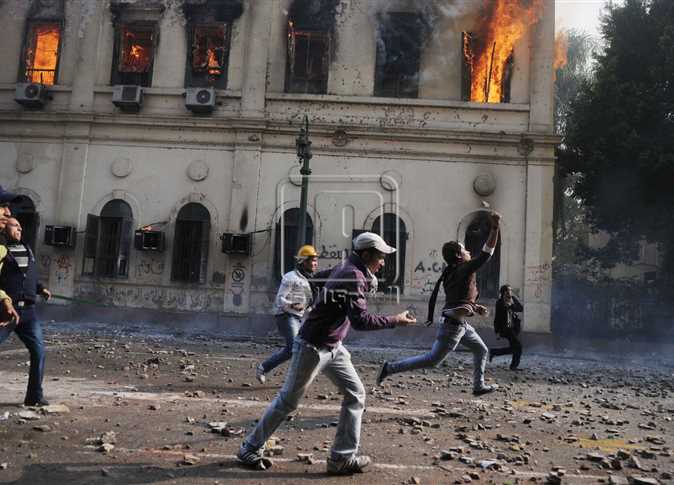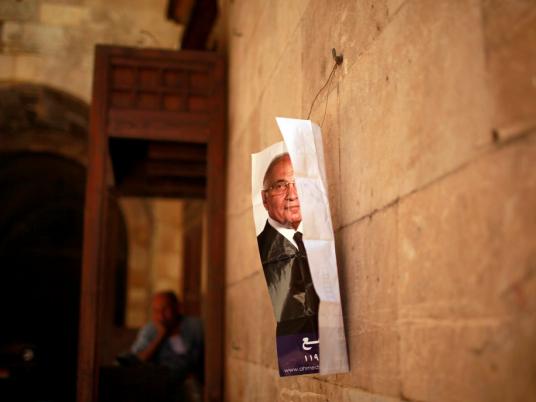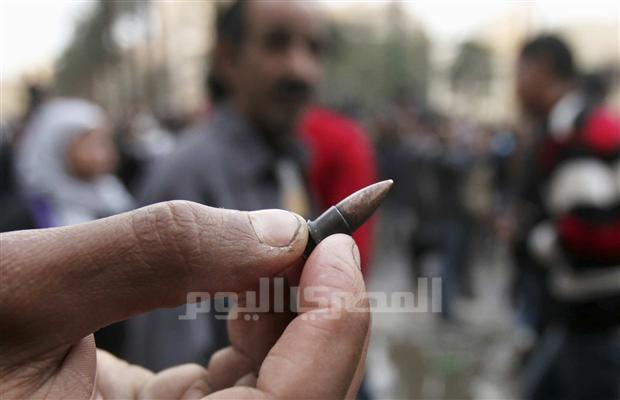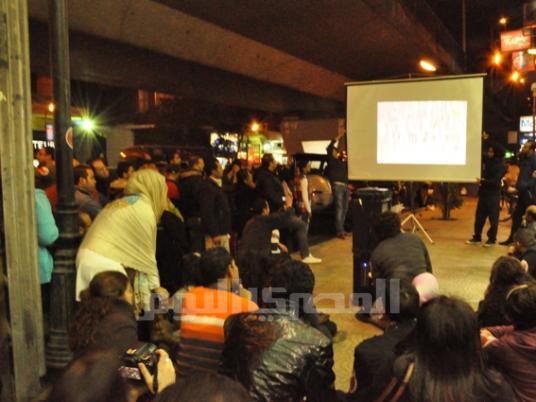
A typical evening in the upper class neighborhood of Zamalek is abundant with shisha smokers in sidewalk coffee shops, diners in affluent eateries and shoppers in high-end stores. Protests in the heart of the neighborhood on 26 July Street — one against military rule and a counter-protest — are somewhat novel. These protests occurred in late December.
The routine of the residential neighborhood was broken when a video of army violations was screened in the middle of the street, as part of the newly-launched “Military Liars” campaign designed to expose the ruling Supreme Council of the Armed Forces’ (SCAF) lies about army violations against protesters.
The screening motivated SCAF supporters to launch a counter protest. “We are the army,” they chanted in the face of “down with military rule” chants by the revolutionaries, all before the bewildered eyes of Zamalek’s inhabitants.
This scene is the cost of bringing the revolution outside of Tahrir Square, where it has safely thrived, while many remain isolated from it amid a war of information between the SCAF and activists.
“We realized that the people are the most important element. Tahrir Square has to exist in all of Egypt’s neighborhoods. The revolutionary forces have to have roots everywhere in Egypt in order to retain the popular mobilization needed for the revolution to succeed,” Ahmad Ezzat, an organizer of the "Military Liars" campaign, told Egypt Independent.
During recent months, the SCAF, aided by state media, has been saying that the revolutionary youth who forced Hosni Mubarak to step down in February of last year are not those who continue to protest in Tahrir Square. Protesters have been described as thugs, enemies of stability and anti-statists who dare to oppose the army, which is considered the cornerstone of the modern Egyptian state.
“This army that they are insulting protects our country. This is our last standing shield. We can’t destroy a whole army and ruin the country’s image in front of the world just because one or two or even ten were beaten up. This is the last army in the Arab world that defeated Israel,” said Alaa Hamouda, who joined the pro-SCAF demonstration. He owns a shop on the same street where the screening was taking place.
“These people who were beaten up in the protests must have insulted the soldiers and officers. The army is not the police. I am with you if you say the police made violations but this is the army.”
Hamouda espouses romantic notions of the army upheld by many Egyptians, despite mounting discontent from activists about violations in dealing with protests.
“Even if they really did these violations, they shouldn’t be disclosed. It is completely unacceptable that we hurt the army in any way. We have to be realistic; we can’t live without police and army. These violations are a reaction to what they have to put up with. We just want life to go on normally,” said Sayed Mohamed, while watching the clashes from the entrance of the restaurant where he works.
In a bid to counter such statements, a number of revolutionary groups came up with the idea of launching “Military Liars,” a campaign which aims to connect with those who have come to be known as the “couch party” or those who are not politically active.
The campaign was launched following the SCAF’s press conference about clashes between protesters and military forces at the end of December 2011. At the conference, SCAF member Major General Adel Emara denied the use of violence, despite the deaths of 17 protesters and footage of soldiers brutally beating people in the streets.
“The idea is to create an alternative citizen’s media that can reach people in their homes in order to expose the SCAF and make people understand that neither the military nor the police protect the country as they claim,” said Ezzat.
The campaign includes organizing screenings of videos that show army violations in the streets around Egypt’s neighborhoods and usually ends with a march. Carefully-edited videos show footage of army abuse accompanied by recordings of SCAF members claiming self-restraint and denying the use of force.
The recent weeks, similar events have been replicated by activists in 20 districts in Cairo and ten other governorates.
The next phases of the campaign will focus on the SCAF’s lies concerning other issues, such as the economy and security, Ezzat added.
“It’s a step that came late because the political process has been reduced to million-man protests in Tahrir Square. However, a protest should always be preceded by a period of street mobilization so that it comes as the culmination of work and not a goal in itself,” said leftist activist and blogger Wael Khalil.
Khalil is also one of the initiators of a campaign called “Protect Your Revolution,” which hosts discussions about the revolution with Egyptians across the country. Its goal is to correct misconceptions spread by smear campaigns.
The campaign plans to write articles, draw cartoons and make short movies about the revolution, according to a statement issued by the new movement.
The first initiative of the campaign took place on Thursday, when people stood along a main street in Mohandiseen, holding signs bearing the principles and goals of the revolution. “Your demands are our demands,” “Politics is not for the army” and “The people demand an elected president soon,” were among the statements written on the signs.
“Being in Tahrir only is not enough. The revolution should evolve on different levels and in different platforms. Everyone can participate in spreading the revolutionary sentiments among his friends, co-workers, neighbors…etc,” Khalil told Egypt Independent.
Khalil admitted the protesters’ mistake of driving a wedge between themselves and the rest of the people. People’s resentment towards protests started to surface during the 23-day sit-in that started on 8 July 2011. There is little communication between the revolutionaries and the rest of the people, according to Khalil and others, a fact which has only served to deepen the wedge between the two groups.
“The revolution is the people, because at the end of the day the activists have to move according to what the rest of the people are ready to support. We have to discuss things with people and listen to what they have to say in order to reach a middle ground. There shouldn’t be a distinction between the revolutionaries and the people,” said Khalil.
“We have to communicate and explain to people that when we chant ‘Down with military rule,’ we don’t mean that we want to destroy the army and when we throw rocks, it’s because we are facing bullets,” added Khalil.
Rana al-Dardiry, a 23-year-old blogger who organized one of the “Military Liars” campaign events in her district, has blogged tips for screenings. For example, she advised activists to talk with residents prior to the event, in order to avoid what could be perceived as an invasive act by the campaign.
“The aim is to win people’s sympathy and prove to them that we are here for a good cause, so we shouldn’t provoke them,” Dardiry told Egypt Independent.
And while residents and pro-SCAF citizens opposed some “Military Liars” events, many of them managed to attract an audience.
“We don’t know where the truth is and how the military is ruling us. They keep telling us there is a third party that incites violence between people and army and we have to know the truth,” said Mahmoud Mohamed, 20-year-old college student who joined the anti-SCAF protest in Zamalek after watching videos of army abuse.
“It’s horrible that the army is committing such crimes after a revolution. I think these street screenings are the right way because we have a high ignorance rate in the country and everyone has to be aware of what is happening.”

